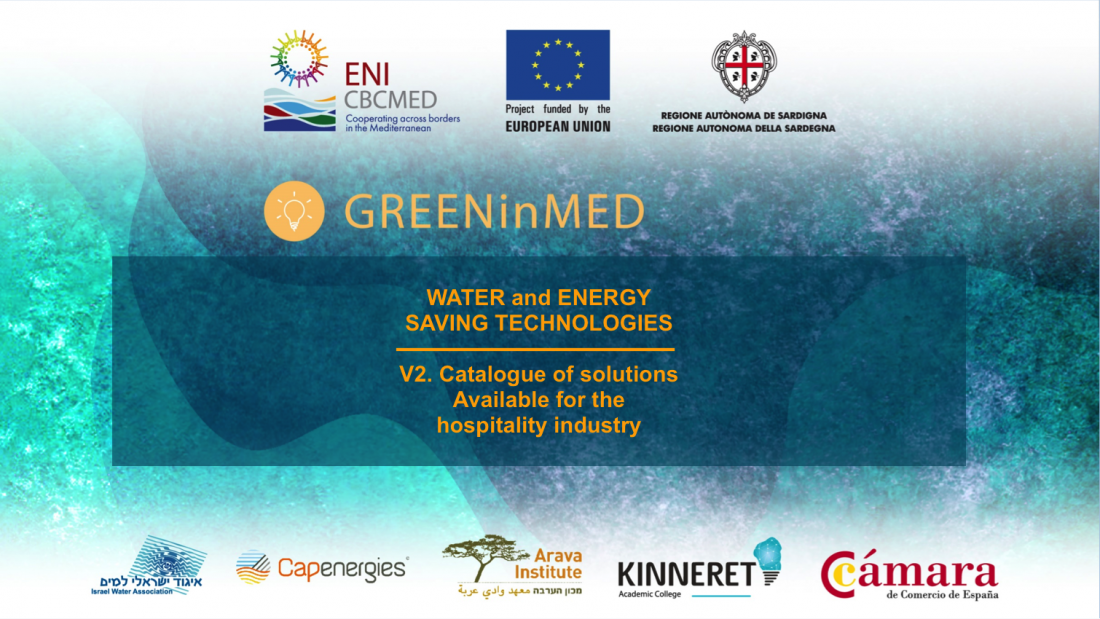GREENinMED تقوم بتحديث كتالوجها للتكنولوجيات المستدامة لقطاع الضيافة

المحتوى متاح باللغة الإنجليزية
-
The catalogue is aimed at those SME tourist accommodations willing to increase their competitiveness by reducing the costs related to their energy and water consumptions, with a positive impact for the environment.
-
The cross-border network of experts has recently updated the benchmark of solutions to include new solution providers.
As the COVID-19 pandemic wave put a strain on the tourism sector, tourist accommodations can now seize the opportunity to reduce their energy costs and their water consumption without compromising the quality of their guests’ stay. Energy and water savings may range from 10 to 40%.
Quick wins requiring relatively low investments but quickly large savings are listed in the benchmark.
A first step towards energy/water efficiency in tourist accommodations is to set up a real energy/water management strategy by collecting quantitative information about the energy/water uses of the different pieces of equipment, e.g. heating, cooling, lighting, domestic hot water, ventilation…
Control and monitoring of equipment can be realized by training the staff, getting the guests involved to change their behavior and, in order to obtain even better results, using Building Energy Management Systems (BEMS) that can optimize operation modes, set points, and hours of operation, trigger alarms, as well as track consumption paths and provide detailed reports. In this way, energy savings can range from 10 to 40%.
Heating and cooling is often the most energy-consuming process in tourist accommodations. The most relevant solution to lower the energy demand is to improve thermal insulation of buildings’ envelope. In fact, ensuring a good insulation of roofs and walls, installing sun shading devices or greening the exterior by adopting nature-based solutions (trees, living wall and green roofs…) can significantly improve tourist accommodations’ energy performance.
The majority of the heat used for domestic hot water (DHW) is exploited for a short time, and then, it is lost in the sewage system. Wastewater heat recovery systems allow to recover a part of the waste heat to pre-heat incoming water for domestic hot water preparation, and therefore decrease the building energy consumption up to30-70% of energy savings for domestic hot water preparation.
Self-consumption of renewable energies is a field that requires more investment, but the energy savings achieved are nevertheless the highest ones. Hybrid solar panels, combining PV technology for electricity generation and solar thermal technology for hot water production, allow meeting different energy needs of buildings such as lighting, DWT or pool heating, for example, at once.
If you are interested in discovering more solutions and associated case studies, as well as the list of suppliers (non-exhaustive), please pay attention to GREENinMED website and soon you will be able to download “Water and energy saving technologies: catalogue of solutions for the Mediterranean hospitality industry V2.2”.







